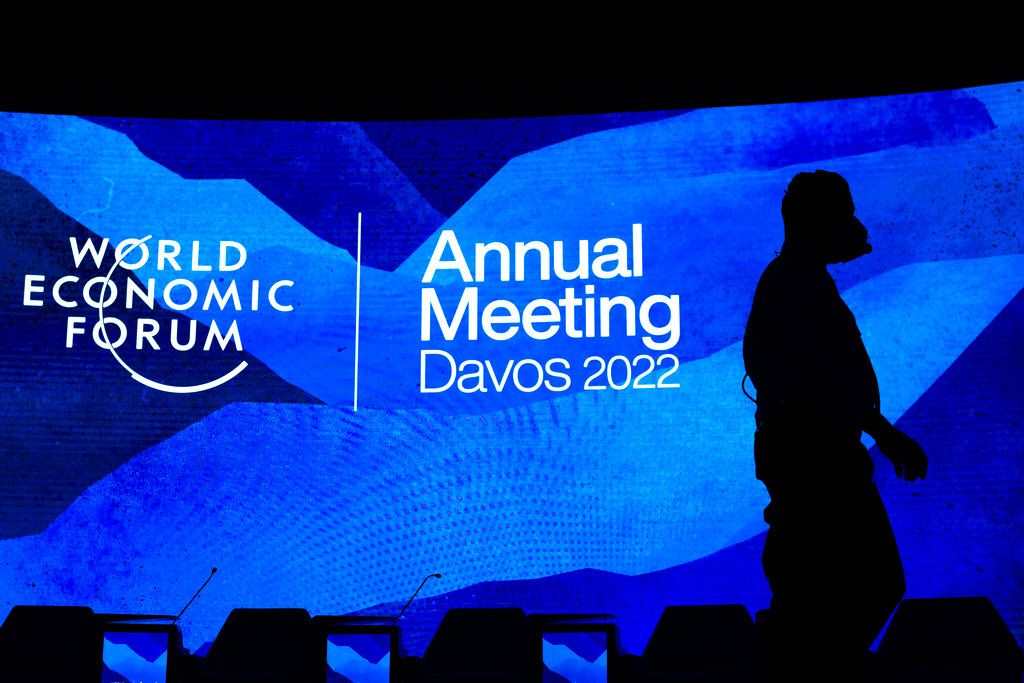
Davos: After two years of the COVID-19 pandemic, the Swiss town of Davos — the hub of an elite annual gathering in the Swiss Alps — is back and so are the business gurus, political leaders, and high-minded activists. And this year, after the virus has infected, killed millions of people across the globe and Russia has invaded Ukraine, there’s no shortage of urgent issues for the World Economic Forum’s annual meeting to tackle. And, there’s climate change too that has captured the world’s attention in unignorable and devastating ways. The acceleration of rising temperatures, the ferocity and costliness of major weather events, and the impact, particularly on people in developing countries, have pushed the issue from one of science to something that touches every aspect of life, including (or, perhaps especially) business and economics.Also Read – Best Time to Invest in India, Says PM Modi at World Economic Forum’s Davos Agenda Summit | 10 Points
Skyrocketing inflation, growing signs of climate change, and food and oil shortages sparked by the Ukraine war have increasingly inherited international attention as the COVID-19 crisis has ebbed around the world. Davos organizers trotted out superlatives to reflect the many challenges. Also Read – Top 10 Richest Indians Can Fund School, Higher Education Of Every Child For 25 Years: Study
“Under the theme ‘History at the Turning Point,’ the annual meeting of the World Economic Forum in Davos this year will be the most timely and consequential annual meeting since the creation of the forum over 50 years ago,” forum founder Klaus Schwab said. He said: “Our first thoughts are with the war in Ukraine. Russia’s aggression on the country will be seen in future history books as a breakdown of the post-World War II and post-Cold War order.” Also Read – Omicron Threat: World Economic Forum To Defer Devos Meet | Details Here
Here are 3 Things on The Table in Davos
CLIMATE CHANGE
Of the roughly 270 panels Monday through Thursday, one-third is about climate change or its direct effects. U.S. climate envoy John Kerry, Ugandan climate activist Vanessa Nakate and Alok Sharma, president of last year’s international climate conference COP26, are among the climate leaders expected in the Swiss resort town of Davos. At the forum’s first in-person gathering in two years, the climate panels are as varied as the issue. They range from combating “eco-anxiety” to helping debt-ridden countries finance a renewable transition.
The world’s top climate scientists have warned that significantly reducing greenhouse gas emissions this decade is necessary to minimize warming and avoid the most devastating effects to the planet. That will require major changes in how business is done, from the way products are produced to how they are transported.
Several panels will look at areas where businesses have successfully transitioned much of their energy portfolio to renewables, the role of finance and government to incentivize or mandate changes, and strategies to keep businesses accountable. Despite heightened consciousness and pledges by businesses, emissions are going up worldwide.
RUSSIA-UKRAINE WAR
Russia’s war in Ukraine will loom large at the conference. When it comes to climate change, the conflict raises two central questions: How should countries respond to energy shocks from reducing or being cut off from Russian oil and gas? And will the war hasten the transition to renewable energies or help fossil fuel companies maintain the status quo? Ukrainian President Volodymyr Zelenskyy plans to pipe in virtually. The biggest delegation of top Ukrainian government officials to leave the country since the war started is set to attend Davos in person, organizers said. In the wake of Russia’s invasion of Ukraine, forum hosts invited no Russian officials or business leaders this year.
CRYPTOCURRENCIES
Despite a recent crash in digital coin values, blockchain and cryptocurrency firms have taken over the main street in Davos. The WEF, which typically caters to the financial elite including major banks such as Citigroup to Credit Suisse, is holding panels on cryptocurrencies’ carbon footprint and future and one on decentralized finance. Executives from the crypto sector have descended on the annual gathering of business leaders and politicians in the Swiss Alpine resort, seeking to encourage faster adoption of their technology, which is largely unregulated. The crypto crowd’s prominence at Davos, while largely on the sidelines of the main event, comes as cryptocurrencies shed $800 billion in market value earlier this month.
Securrency Inc, a digital market infrastructure backed by Abu Dhabi, came to Davos for the first time this year “to build relationships and network” and show how it can bridge new technologies and traditional finance, said CEO Dan Doney. The company has set up its own agenda of panels on digital currency, in the style of the World Economic Forum’s, just outside the security cordon for the main conference center.
Stay connected with us on social media platform for instant update click here to join our Twitter, & Facebook
We are now on Telegram. Click here to join our channel (@TechiUpdate) and stay updated with the latest Technology headlines.
For all the latest For Top Stories News Click Here
